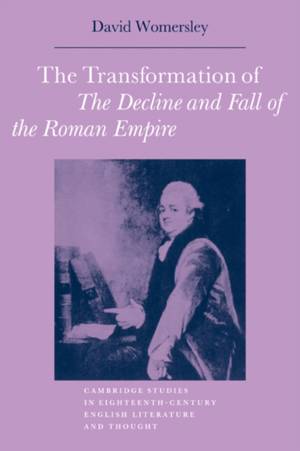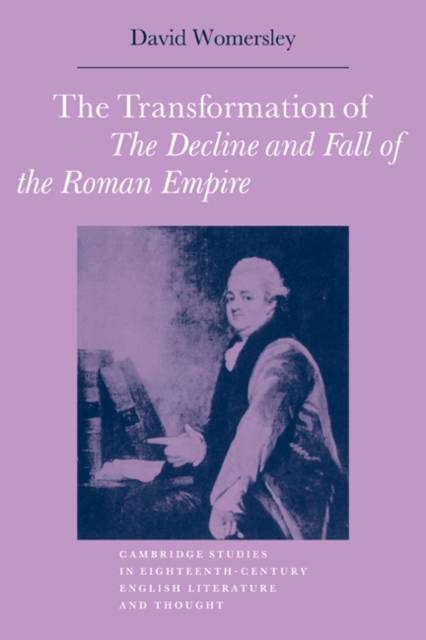
Bedankt voor het vertrouwen het afgelopen jaar! Om jou te bedanken bieden we GRATIS verzending (in België) aan op alles gedurende de hele maand januari.
- Afhalen na 1 uur in een winkel met voorraad
- Gratis thuislevering in België vanaf € 30
- Ruim aanbod met 7 miljoen producten
Bedankt voor het vertrouwen het afgelopen jaar! Om jou te bedanken bieden we GRATIS verzending (in België) aan op alles gedurende de hele maand januari.
- Afhalen na 1 uur in een winkel met voorraad
- Gratis thuislevering in België vanaf € 30
- Ruim aanbod met 7 miljoen producten
Zoeken
Omschrijving
David Womersley's book investigates Edward Gibbon's The Decline and Fall of the Roman Empire as both a work of literature and a work of history, examining its style and irony, tracing its classical and French sources, and highlighting the importance of its composition in three instalments over a period of twenty years. Dr Womersley discusses each of these instalments in detail, plotting the work's transformation from conception to completion, and relating this to the achievements and limitations of the philosophic historiography which Gibbon inherited from Montesquieu and Hume, but finally discarded. The Decline and Fall of the Roman Empire emerges from this study as a work more flexible in its sympathies and surprising in its judgements than has hitherto been granted, while the magnitude of Gibbon's achievement as a stylist, historian and thinker is brought into sharper focus.
Specificaties
Betrokkenen
- Auteur(s):
- Uitgeverij:
Inhoud
- Aantal bladzijden:
- 332
- Taal:
- Engels
- Reeks:
- Reeksnummer:
- nr. 1
Eigenschappen
- Productcode (EAN):
- 9780521070966
- Verschijningsdatum:
- 28/08/2008
- Uitvoering:
- Paperback
- Formaat:
- Trade paperback (VS)
- Afmetingen:
- 152 mm x 229 mm
- Gewicht:
- 485 g

Alleen bij Standaard Boekhandel
+ 170 punten op je klantenkaart van Standaard Boekhandel
Beoordelingen
We publiceren alleen reviews die voldoen aan de voorwaarden voor reviews. Bekijk onze voorwaarden voor reviews.









